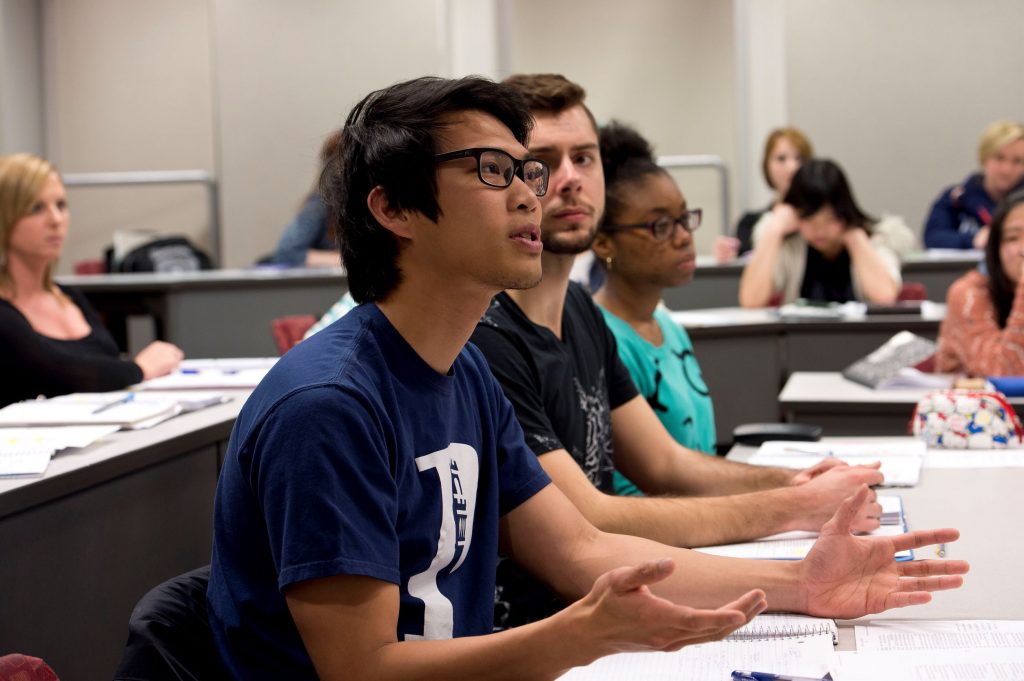
It’s officially graduate admissions decision season. You finally completed all those applications, and now you’re just waiting to hear back from graduate schools. This time can be nerve wracking and draining, so today we’re giving you tips for dealing with decision season. We’ll discuss rejection letters, cold feet, and figuring out which program to choose.
Dealing with the Wait
No one likes to wait, and waiting to hear back from graduate programs can be particularly challenging. After all the work you’ve put into your applications, it can be anxiety-inducing to wait for a decision. Some students even start to get cold feet about graduate school, feeling burnt out after the stress of applications.
If you’re one of the many students feeling anxious or burnt out waiting for a graduate admissions decision letter, finding a community of similar people can be helpful. The forums on GradCafe are a great place to start. Here, you can chat with other applicants in your area of study. GradCafe is a nice place to find support and talk to others who understand what you’re going through.
Another way to deal with the wait is to keep yourself busy. Her Campus has a great blog about ways to keep your mind occupied while you wait to hear from graduate programs. Maybe you pick up yoga or start reading for fun again. If you’re a senior in college, maybe you use this time to catch up on school work. However you choose to keep busy, taking your mind off of graduate school is a healthy way to cope with the wait for an admissions decision.
Handling Rejection
After all the work you’ve put into applying for graduate school and all the anxious waiting for a decision, getting rejected can feel like the end of the world. If you get a rejection letter, remember that it’s not a reflection of your worth as a student or person.
Every year, many excellent applicants get rejected from graduate programs. There are many reasons students get rejected that have nothing to do with the strength of their application. Maybe the faculty chose one student over another based on who would be a good fit for the rest of the cohort. Other times, a school is so sure that an applicant will be accepted to a better program that they reject the student rather than spending time to put together an offer. Any number of reasons can contribute to a graduate application rejection, so don’t be too hard on yourself.
As you process the rejection, begin to make a plan for what to do next. If you got into other programs, would you want to attend any of them? If you didn’t get into any programs, do you want to re-apply in the next application cycle? Maybe instead of pursuing graduate school right away, you want to take a few years to work and build up your resume. Whatever you decide, remember that there are lots of great opportunities and a rejection shouldn’t define your future!

Making the Big Decision
Did you get accepted to multiple programs? Congratulations! Once you’ve taken some time to celebrate, you might feel stuck trying to choose between schools. Graduate school is a big investment, and it can be intimidating to choose between multiple great options.
If you find yourself in this situation, there are a number of factors that might impact your decision. First, think about your career after graduation. Which program is going to give you the best prospects for your dream career? You should also consider cost of attendance. Maybe one school has a more robust program but another school gave you more scholarship money. At Emerson, graduate applicants are automatically considered for most of our fellowships and scholarships, so be sure to check your admissions portal to see your financial aid offer.

In addition to program quality and cost of attendance, you might also think about the location of each school. Rural versus urban schools have different atmospheres, and it’s important to be in an environment where you can learn and thrive. Emerson is located in the heart of downtown Boston, where students get access to unrivaled professional experiences.
Lastly, you might compare the culture of each program you’re considering. Talk to current students about their experiences and how they feel about the school’s atmosphere. If one program is very competitive while another is collaborative, that can make an impact on your experience.
We know that this period of graduate admissions decisions can be stressful. Whether you’re feeling burnt out after applying, processing a rejection letter, or struggling to choose between programs, we hope this blog gives you some ideas for how to handle this period. For more information about Emerson graduate programs, schedule a call with one of our admissions counselors. We look forward to seeing you in Boston soon!


Leave a Reply